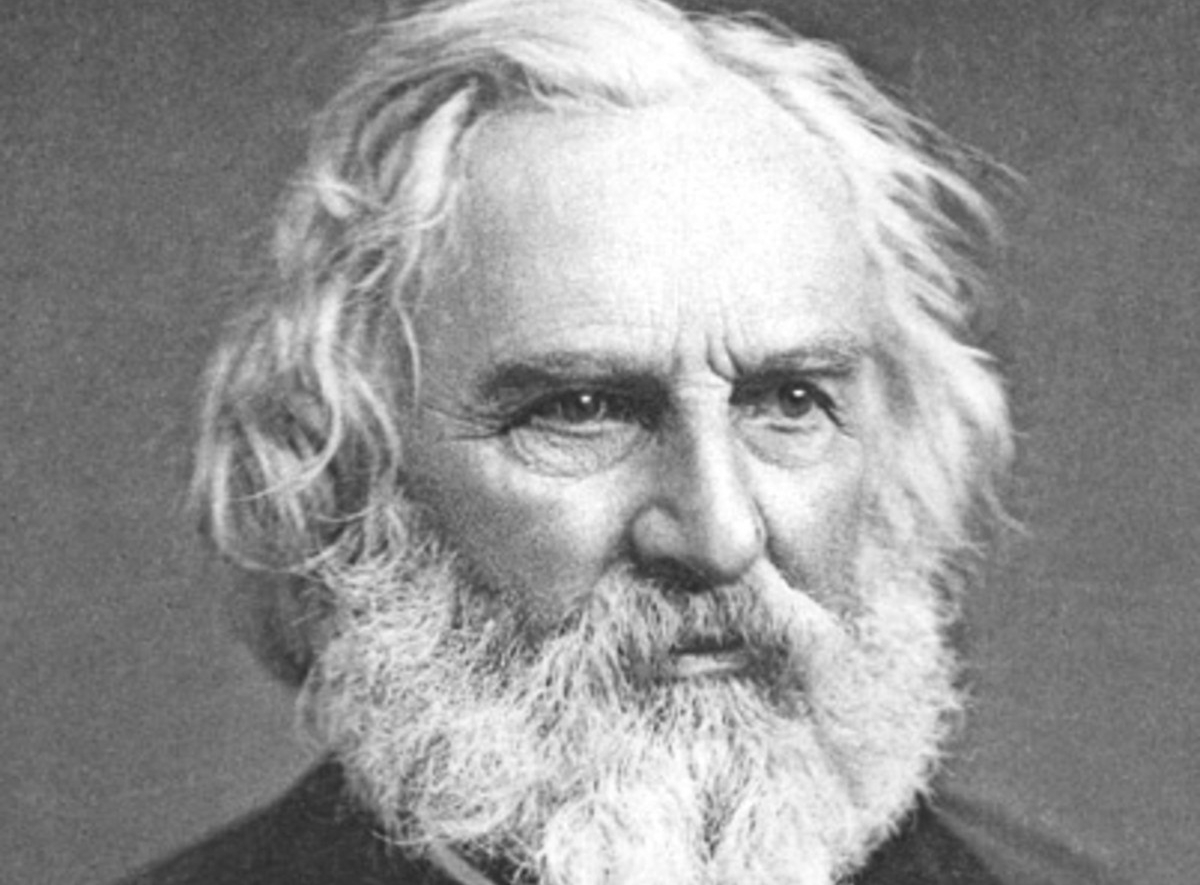REVIEW POTPOURRI: Henry Wadsworth Longfellow
 by Peter Cates
by Peter Cates
Henry Wadsworth Longfellow
Henry Wadsworth Longfelloow had a gift for dramatic tension as well as a unique sense of the potential narrative possibilities in a descriptive poetic setting. An example was his 1866 poem, God’s Acre, yet another term for cemetery, and the starker words, graveyard and burial ground. I offer the poem before further comments:
I like that ancient Saxon phrase, which calls
The burial-ground God’s Acre! It is just;
It consecrates each grave within its walls,
And breathes a benison o’er the sleeping dust.
God’s-Acre! Yes, that blessed name imparts
Comfort to those, who in the grave have sown
The seed, that they had garnered in their hearts,
Their bread of life, alas ! no more their own.
Into its furrows shall we all be cast,
In the sure faith, that we shall rise again
At the great harvest, when the arch-angel’s blast
Shall winnow, like a fan, the chaff and grain.
Then shall the good stand in immortal bloom,
In the fair gardens of that second birth;
And each bright blossom, mingle its perfume
With that of flowers, which never bloomed on earth.
With thy rude ploughshare, Death, turn up the sod,
And spread the furrow for the seed we sow;
This is the field and Acre of our God,
This is the place, where human harvests grow!
Gottesacker was the ancient German word for God’s Acre which, as mentioned above, was the burial ground. In time, the Moravians and other groups came to see the term as a field for the sowing of flowers and such, instead of cadaver disposal, i.e. burial ground. The scriptural words, ‘from dust to dust,’ do not have to mean disposal in the cemetery septic grounds but a divine benison or blessing honoring the person that was, at least for the time being.
Longfellow was particularly effective in his use of contrasting imagery. ‘Into its furrows shall we all be cast,’ whether or not we led good lives. And we all have an expiration date and will be transferred elsewhere on that date, whether we like it or not. Yet the poet wrote a positive note; ‘In the sure faith, that we shall rise again/at the great harvest’.
But H.W.L. jolted us immediately back to reality – ‘when the arch-angel’s blast/Shall winnow, like a fan, the chaff and grain.’ The ‘winnowing fan’ is a threshing machine, not a gentle breeze.
In the last two stanzas, Longfellow sums up some eternal hope and faith for the meek and pure in heart – ‘good stand in immortal bloom…..Acre of our God…where human harvests grow.’
This is Longfellow’s gift for dramatic tension and narrative possibilities in a most splendid and truly descriptive poetic setting and the story line for the end of life’s journey .
Another highly recommended Longfellow poem is Excelsior.
Responsible journalism is hard work!
It is also expensive!
If you enjoy reading The Town Line and the good news we bring you each week, would you consider a donation to help us continue the work we’re doing?
The Town Line is a 501(c)(3) nonprofit private foundation, and all donations are tax deductible under the Internal Revenue Service code.
To help, please visit our online donation page or mail a check payable to The Town Line, PO Box 89, South China, ME 04358. Your contribution is appreciated!



Leave a Reply
Want to join the discussion?Feel free to contribute!